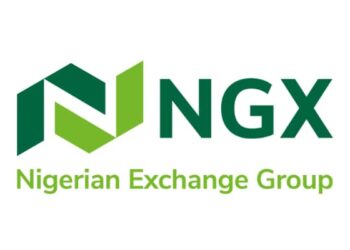Sachets dominate the retail industry particularly the Fast-Moving Consumer Goods (FMCG) in many parts of Africa but more significantly in Nigeria where population is high and there is huge demand for consumer goods. Therefore, sachet products or single-serve packs as they are normally called in the FMCG industry are dominating the retail landscape and they are products that can be consumed at once or ready for single usage. In colloquial terms, the model is referred to “sachetisation” which is known to have kicked off in Nigeria in the ’90s with the making of smaller sachets of drinking water (pure water) and Cowbell powdered milk by Promasidor. Then the idea was necessitated by innovation to penetrate the larger low- or no-income populace, however, the idea was later followed by intense and stiff competition. Today, literature suggests that over a 60million units of pure water is consumed per day with loads of other sachet pack products in Nigeria.
The sachet trend has continued to expand due to shrinking income levels, wide-spread hardship, and rising poverty amongst the populace and these no doubt have caused the growing adoption of sachet packs in the country in recent times. More so, for companies, the tough operating environment, decrepit infrastructure, porous borders, waning bulk consumption has further heightened the need for the sachet model adoption. Both individuals and businesses are feeling the weight of the economic challenges and over time the disposable income of consumers continues to wane. Besides, the novel coronavirus (COVID-19) pandemic, economic recession, and the high inflation rate in recent times in the country have also continued to worsen the situation. Majorly eroding the purchasing power of many individuals, households, and even companies.
The current economic situation has also made products and services more expensive nationwide. In fact, many manufacturing companies are witnessing reduced patronage because not everyone can afford the bulk purchase or regular packs, and consumers continue to look for cheaper alternatives. So, “sachetisation” is a business strategy and an alternative to engaging customers continually in this trying time. The idea is to make products affordable to consumers in particular the majority that are daily income earners and that constitute the large chunk of the country’s population.
Most companies have resolved to adopt the “sachetisation” model to give some of the poorest people in Nigeria access to everyday household essentials with ease and for continuous patronage. In fact, companies continue to innovate and roll out sachet products to enable them to penetrate the larger low-income market which are the worst hit economically. Also, for the companies this time, it is a way to increase sales within the customers who cannot afford to buy in larger quantities.
History have it that “sachetisation” is not something that just began in Nigeria of Africa. The ‘sachetised’ products have long been part of Indian culture, which is believed to have pioneered the bite-sizing of consumers’ products and commodities some 70 years ago, beginning with tea, of course, in small paper pouches tucking precious leaves just enough to make tea for two.
Even though the sachet model saves wastage with portion control, it requires minimum packaging materials, less storage, low shipping, and transportation cost, and most importantly it is pocket friendly to the end-users. However, the painful truth and disclosure are that this trend is an indication of income inequality, unaffordability, the wide gap between the haves and have nots, high unemployment rate, dwindling economy, and high level of poverty in the country. Supportably, the National Bureau of Statistics (NBS) in the “2019 Poverty and Inequality in Nigeria” report, highlights that 40 percent of the total population, or almost 83 million people, live below the country’s poverty line of 137,430 naira ($381.75) per year. This figure even appears underestimated in my opinion, due to lack of data on the extremely huge informal sector of the country. However, these sachet products give the poor in the country the access to everyday household essentials even though their disposable income continues to shrink in real terms.
From observation, hardly is there any market leading FMCG company in Nigeria that has not manufactured a single-serve pack (sachet packed product) just to capture the poor consumers. To buttress the adoption of this model, the various operators in the open markets in the country, unknowingly practice the sachet model on perishables, vegetables, and food stuffs freely. All due to economic reasons and the waning purchasing power of the consumers. The regular essential consumables that are noticeable in sachet are milk, detergent, cooking oil, cereal, margarine, liquor, pepper mix(pepper, tomatoes and onions), toothpaste, sugar, tomato sauce, shampoo, cornflakes, seasoning/spices, biscuits, dishwashing liquid, shaving sticks, cereals, bleach, Lipton sachet with just two tea bags, diaper sachet with just two units, disinfectant and energy drink amongst others.
From sampled opinion this sachet trend is on the increase in a bid for companies to continue to increase market share, increase market penetration, and remain competitive. The important thing is that the trend is now becoming increasingly popular and even choice brands are not left out of the growing wave. An example is the revered creamy liquor brand, Baileys, which has always packaged its products in special bottles of different sizes, has adopted “sachetisation” as well. This is to encourage quick sell and increase competitiveness in the consumer goods space, where affordability continues to be a big issue.
It is a common argument that consumer goods are needed by humans irrespective of social class to reasonably live and survive. But the common trend in Nigeria is that the low-income earners, also known as Bottom of the Pyramid (BOP) most time ends up paying more for consumer products than the rich who buy the regular packs and sometimes in huge quantities. Simply put, the poor pay more than the rich for the same basic products in real terms in Nigeria. For instance, the retail price of a 50g sachet of cereal is N100, 10 sachets cost N1000(50g X 10 = 500g). However, the retail price of a 500g pack is N750. Conspicuously, purchasing 500g sachets of cereal cost approximately 33 per cent more. Even imagine, in some cases, an additional 50g to 100g comes as an extra giveaway on a 500g pack when purchased during promotion time at no cost. The reality is that poor Nigerians are under-served and over-charged with consumer goods while the rich spend even less.
Importantly, companies need to note that the population of the poor in the country continues to grow indicating that those unwilling to flow with the sachet trend will be at risk of running out of business. Considering the economic griefs in the country the trend is beneficial as regards patronage, sales, and for business continuity. No doubt, sachet model is on the increase in the country and it is currently a winning strategy to sell what a large percentage of the population can afford.
All said, the points raised above are not to completely justify “sachetisation” as a business strategy but to also implore the government to look at measures to tackle multidimensional poverty- which includes food security, housing, health, education, and security which directly impact the wellbeing of the populace. Therefore, government poverty reduction aspirations need to be heightened, to mitigate the chronic hardship in the country and socio-economic plans needs to be in place to lift more people out of extreme poverty and this should be a priority now. The environmental implications particularly waste disposal is another huge matter that seems to require great attention because sachets add to the compounding problem of pollution in the country. Therefore, key policies and measures to encourage proper waste management, and recycling in the country should also be considered to avoid huge environmental pollution.
In conclusion, context observation indicates “sachetisation” is now more like a necessity than an option in the country due to increased deprivation in myriad aspects of life. The telecommunication and some real estate companies in the country are currently exploring the sachet model with their various smart(sachet) pack products with daily payment options. Above all, it is not even out of place to mention that just like these companies and the Fast-moving Consumer Goods (FMCG), the financial sector- banking, insurance, and investment management companies and even the Cable TV operators can ‘sachetised’ to make services more accessible and affordable for the masses. However, leveraging innovation and technology will be of great significance to achieve this. Good luck!
How may you obtain advice or further information on the article?





